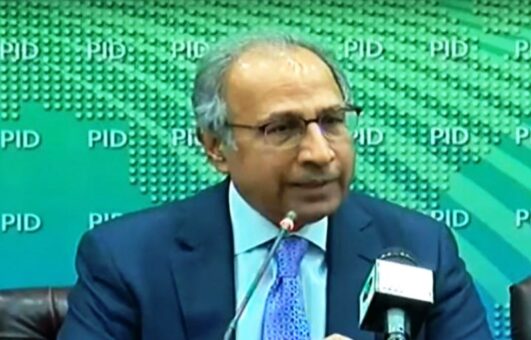KARACHI: National Bank of Pakistan (NBP) has declared 14.5 percent decline in after tax profit for the first quarter ended March 31, 2019 due to imposition of super tax.
Meeting of the Board of Directors (BoD) of NBP was held on Wednesday at Bank’s Head Office in Karachi in which the BoD approved the financial statement of the Bank of the quarter ended March 31, 2019.
The after tax profit for the quarter ended March 31, 2019 was at Rs4.2 billion, which was 14.5 percent lower when compared with Rs4.9 billion in the corresponding period of the last year.
The bank attributed the decline in profit to imposition of super tax which was imposed through Finance Supplementary (Second Amendment) Act, 2019 for the tax year 2018 (financial year ended December 31, 2017.
Pre-tax profit of the bank was at Rs8.7 billion for the period under review as against Rs7.6 billion for the corresponding quarter of 2018, registering 14.5 percent increase.
The bank earned mark-up/ interest income amounting to Rs45.8 billion which is 45.9 percent higher than Rs31.4 billion earned during the corresponding period last year.
This growth is attributed to the increase in discount rate, as well as a volumetric growth in both investment and advances, YoY.
Also, the Bank’s non mark-up / interest income increased by 40.2 percent YoY and amounted to Rs8.3 billion.
The bank’s unconsolidated pre-provision profit amounted to Rs10.98 billion which is 45.2 billion higher than Rs7.6 billion for the corresponding period o the last year.
Earnings per share amounted to Rs1.97 as against Rs2.30 for the corresponding quarter ended March 31, 2018.
The total assets of the bank as at March 31, 2019 stood at Rs2,401.8 billion as compared with Rs2,798.6 billion as on December 31, 2018, registering decline of 14.2 percent.
Gross advances of the bank amounted to Rs1,046.1 billion which is slightly lower than Rs1,059.5 billion as on December 31, 2018.
However, YoY, total advances registered increase by Rs176.6 billion or 20.3 percent as compared to Rs869.5 billion as of March 31, 2018.
Total deposits of the bank as on March 31, 2019 amounted to Rs1,778.7 billion, lower by Rs232.7 billion (11.6 percent) as against Rs2,011.4 billion as of December 31, 2018. The drop was observed due to withdrawal of deposits by certain financial institutions. Customer deposits that from the core of bank’s funding pool however remained stable.





